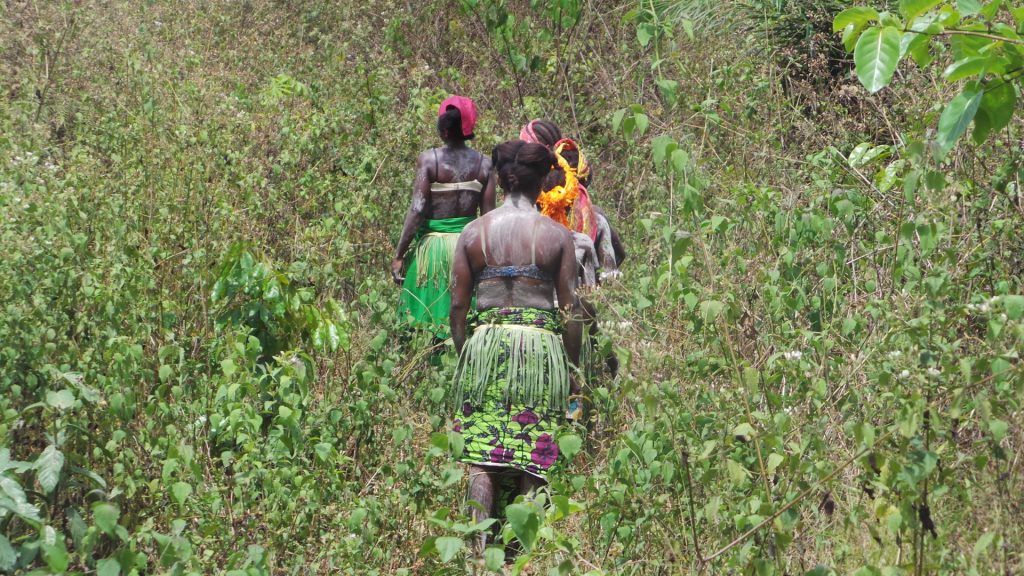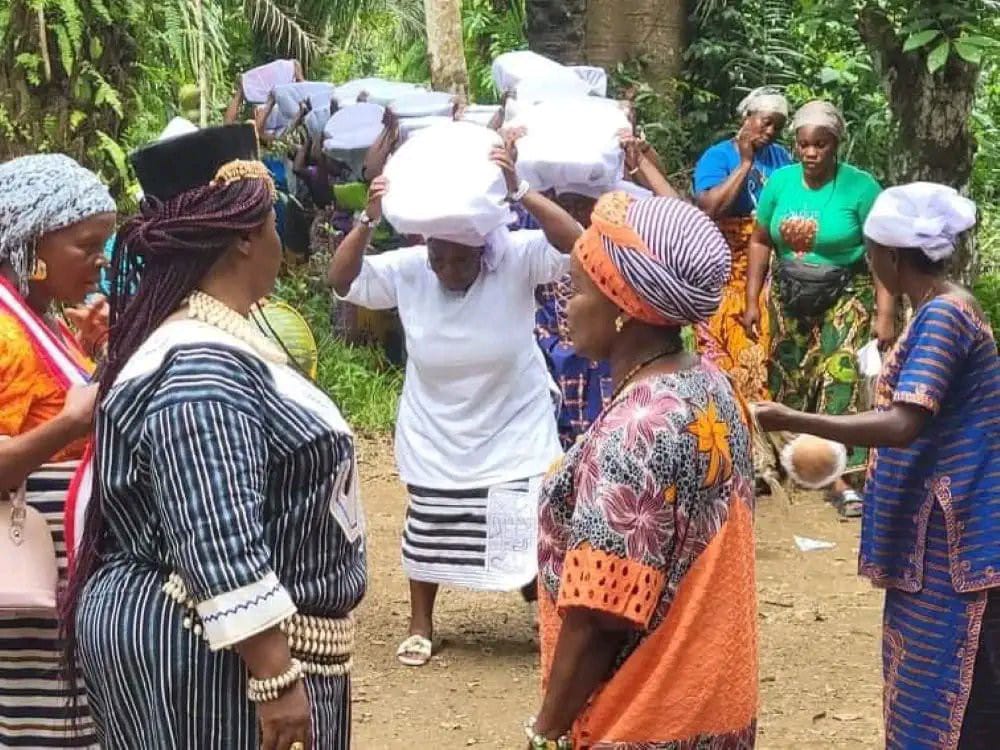Female Traditional Leaders in Central Liberia, Bong County have willingly surrendered their traditional tools used for the operation of Female Genital Mutilation (FGM).
The turnover ritual ceremony recently took place at the official closing of the Sande Bush School in Gbaota, Bong County when the National Council of Chief and Elders represented by his deputy Jemmie Jpokia, conducted a traditional ceremony.
The Sande Bush School, also known as the Sande Society, is a traditional secret society and educational institution found exclusively for women and plays a significant role in their cultural and educational development.

Here are some key points about the Sande Bush School:
INITIATION EDUCATION: Young girls enter the Sande Society through an initiation process, which includes teachings on womanhood, social norms, and practical skills such as dancing, singing, and various domestic tasks. It serves as an important rite of passage from girlhood to womanhood.
CULTURAL SIGNIFICANCE: The Sande Society is deeply embedded in the cultural fabric of the Mende and Temne communities. It imparts values, customs, and traditions that are central to their identity.
SECRECY: The Sande Society is shrouded in secrecy, and its practices are not generally disclosed to outsiders. The secrecy is maintained through rituals, codes, and symbols.
CEREMONIAL PERFORMANCES: The Sande Society is known for its elaborate ceremonies, which include dancing, singing, and the display of cultural attire. These events are often open to the entire community.
The Zoes at the ceremony, submitted their tools to Judee Andee, Liberia Traditional Queen, as a meaningful gesture to mark their dedication by ending the practice of FGM in that part of the County.
Speaking at the event, UN Women’s Country Representative, Comfort Lamptey, commended the traditional leaders for their tireless efforts to eradicate FGM in Liberia.
Madam Lamptey emphasized that embracing cultural change is challenging, but imperative for a better Liberia, where young girls can achieve their full potential in society.
She further pledged her institutional support to former Zoes in the eleven practicing Counties to help them find alternative sources of income as they laid down their tools, something which according to her will include providing agricultural tools, among others.
For her part, Amb. Judee Andre pointed out that the efforts to eradicate FGM in Liberia are being financed by UN Women, the Swedish government, and the United Nations, adding that plans are in progress to establish Vocational Heritage Centers in all 11 counties where FGM is practiced, aiming to equip women with alternative skills.
The efforts to combat FGM are often multi-faceted, recognizing the need for a holistic approach that involves legal, educational, healthcare, and community-based strategies. It’s important to respect cultural sensitivities while advocating for change, and these efforts have contributed to a reduction in the prevalence of FGM in many areas
Female Genital Mutilation (FGM) has been practiced in several West African countries including Guinea, Mali, Sierra Leone, Burkina Faso, Ivory Coast, Senegal, Ghana, Nigeria, Benin, and Liberia
Figo Mansaray is a Liberian Journalist for over 10 years and currently working with Kukatonon Media Inc and AYV Media Empire.
Figo, a prospective Graduate at the University of Liberia can be contacted via +231777489052/+231881734014 and mfmansaray2015@gmail.com


